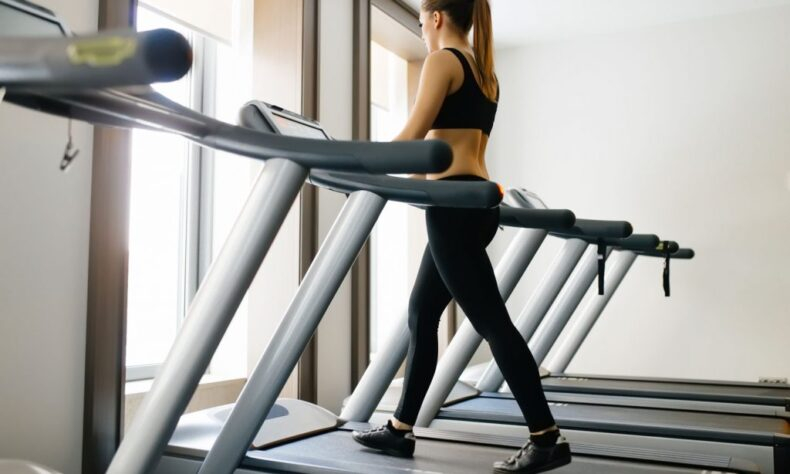
Have you recently been vegan and haven’t lost any weight? If you’re struggling to lose weight while vegan, read on for some possible reasons!
8 vegan tips to help you lose weight
- Do not eat processed vegan substitutes
- Oil Removal
- Don’t forget the portion size
- Prepare meals for the week
- Stick to drinking water
- Check food labels
- Refined Sugar Removal
- Get enough protein
Not all vegetarians lose weight?
Many people find it very easy to lose weight on a vegan diet. They think that if you go vegan, you will lose weight no matter what you eat, as long as there are no animal products. This is a fairly widespread misconception.
A high-protein diet plan for weight loss and health promotion
The idea that vegetarianism equals weight loss is not true. And a lot of people realize it when they go vegan.
If you don’t eat a healthy vegan diet, it’s easy to gain weight. There are many processed foods that can be vegan, such as chips, cookies, cakes, cheese, and more. There is a vegan version of everything!
This is good for animals and the planet, but if you are health conscious and want to lose weight on a vegan diet, you need to eat the right foods most of the time.
8 vegan tips to help you lose weight
If you’re struggling to lose weight on a vegan diet, check out these tips!
-
Do not eat processed vegan substitutes
Vegan Butter, Vegan Cheese, Beyond Burgers… So delicious, but unhealthy! You treat yourself sometimes, but eating these types of foods regularly makes losing weight much more difficult.
There are healthy vegan cheese recipes online that will be great alternatives to store-bought processed foods. There are also plenty of delicious healthy vegan burger recipes!
Always have healthy food ready so you don’t rush to processed food when you’re hungry!
-
Oil Removal
There has been much debate over the health effects of oils. Some studies support adding certain oils to your diet as a healthful addition. Other studies have shown that oil consumption has negative health effects. This can be very confusing. If you are wondering whether to eat oil or not, please make a decision after researching as much as possible.
After researching it I decided to get rid of the oil because I believe the oil is not good for my health and can harm my body. Oil is a fat derived from whole foods and is very high in calories. One tablespoon of oil contains about 120 calories your body doesn’t need! It’s just wasting calories, and more calories equals more weight gain.
It’s much better to eat olives than to just skip the oil. Whole olives provide even more nutritional benefits. The same goes for coconut oil. Coconut oil has received a lot of hype as a health food recently, but a Harvard article found that coconut oil raises levels of harmful LDL cholesterol. Not as bad as other oils.
How to remove oil
I have found that in many recipes’ oil is unnecessary because it helps with cooking. Vegetable broth or water can be substituted for roasting on the stove. You can also try soy sauce or tamari if the taste suits what you’re cooking.
However, occasionally removing oil from a baking recipe can drastically change the texture and ruin the recipe. You can substitute it with applesauce or mashed banana, or add liquid sweetener. Your best bet is to find oil-free vegan baking recipes. They exist and are delicious!
- Don’t forget the portion size
I’ve heard a lot of people say you don’t need to look at portion sizes in a whole food plant diet. Some people say that cutting off all processed foods gives you unlimited good food, so you can easily lose weight even with a vegan diet.
If you eat a pot full of potatoes every day or indulge in peanut butter on a regular basis, you won’t lose weight. Potatoes are healthy, rice is healthy, natural peanut butter is healthy, and avocados are healthy. You get an idea. However, consuming these items on a regular basis can make it difficult for you to lose weight.
If desired, add a tablespoon of peanut butter to the oatmeal. But don’t sit there and eat a few spoonfuls right out of the jar. Also, if you’re serious about losing weight, consider eating only half an avocado at a time. Avocados are great, but over 300 calories depending on their size!
Be enthusiastic about eating green vegetables and eat plenty of fruits. However, there are whole foods that are good for health that should not be eaten in unlimited quantities. So, if you’re eating all the right foods and you’re still not losing weight, take a look at the servings!
You can experiment with reducing healthy fats, but don’t get rid of them! Everyone’s body is different, so there is no set amount of food you must eat.
If you’re already doing everything else on this list and you’re still struggling to lose weight, it may take some trial and error.
- Prepare meals for the week
Many people know what to eat to lose weight on a vegan diet, but have a hard time putting it into practice and sticking to it. I know that sometimes I feel very lazy and not in the mood to cook healthy food.
That’s where meal preparation is needed. Meal planning and preparation can help if you’re having trouble keeping things in order.
How to plan a meal
It’s a good idea to find healthy vegan meals online or in recipe books and choose what you want to eat throughout the week. Check the portion size and adjust the amount of ingredients accordingly to ensure you have enough food for the week.
It can be helpful to choose meals that use the same ingredients. That way, you don’t have to buy or waste a lot of groceries.
For example, if you choose a recipe that requires halves of an onion, choose another recipe that requires halves of an onion and use whole onions.
Once you have a week’s worth of ingredients, make all the recipes that day, put them in containers and store them in the refrigerator. Then you can have a healthy vegan breakfast, lunch and dinner every day!
This will greatly reduce the tendency to touch unhealthy foods at mealtime.
- Stick to drinking water
We all know that water is good for our body, so make sure you drink enough (about 8 cups a day).
Even a small amount of pure fruit juice can be healthy, but if you’re trying to lose weight, you shouldn’t waste calories by drinking it! Even making juice from 100% pure fruit can add a lot of unnecessary calories to your diet.
How to gain weight quickly and safely
This applies to all drinks except water. For example, I like kombucha and it has health benefits, but if I drink it every day, I’ll have to cut those calories in the amount of food I eat. Easy to drink only water.
And those who think of smoothies as drinks shouldn’t. Smoothies are great, but depending on their content and size, they should be consumed as a meal or snack. Don’t think it’s just alcohol.
- Check food labels
Just because it’s vegan doesn’t mean it’s healthy. Check the ingredient list and pay attention to the number of calories per serving. Don’t be fooled, sometimes servings are really small to show fewer calories!
Also, make sure that no oil or sugar has been added to the ingredients. Sugar is often hidden in ingredient lists under other names that you may not even realize it is sugar. Learn more about alternative names for sugar here.
You’ve probably heard this before. But let me say it again. If you can’t pronounce it or have never heard of it, you probably shouldn’t eat it. Especially if you don’t want to lose weight!
- Refined Sugar Removal
This has to do with checking the label, but don’t add refined sugar to anything you make at home.
- Get enough protein
I get frustrated when I hear people say they can’t get enough protein from a vegan diet. Because you can do enough. The problem is that most people don’t know how to get protein when they start vegan because most people get their protein from meat.
Being vegan doesn’t just mean eating fruits and vegetables. Because that makes you hungry and craving junk food. That’s why it’s important to eat enough protein. Protein also helps with metabolism and muscle maintenance.





